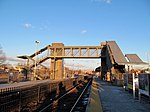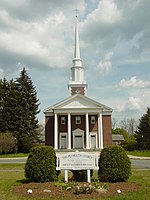South Middlesex Correctional Center
1976 establishments in MassachusettsBuildings and structures in Framingham, MassachusettsPrisons in MassachusettsUnited States prison stubs
The South Middlesex Correctional Center (SMCC) is a small, minimum security/pre-release state prison for women located in Framingham, Massachusetts. The prison opened in 1976, originally as a part of MCI-Framingham. Today, it is its own facility specifically for women. Most, if not all inmates work in the community during the day for an average wage of $7/day. Many work in fast food restaurants, as janitors, carpenters, or painters. On January 6, 2020, there was 63 inmates in general population beds.
Excerpt from the Wikipedia article South Middlesex Correctional Center (License: CC BY-SA 3.0, Authors).South Middlesex Correctional Center
Loring Drive, Framingham
Geographical coordinates (GPS) Address Nearby Places Show on map
Geographical coordinates (GPS)
| Latitude | Longitude |
|---|---|
| N 42.266944444444 ° | E -71.406944444444 ° |
Address
Massachusetts Correctional Institution Framingham
Loring Drive 99
01701 Framingham
Massachusetts, United States
Open on Google Maps








